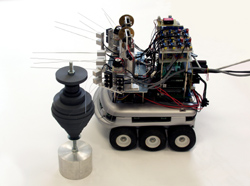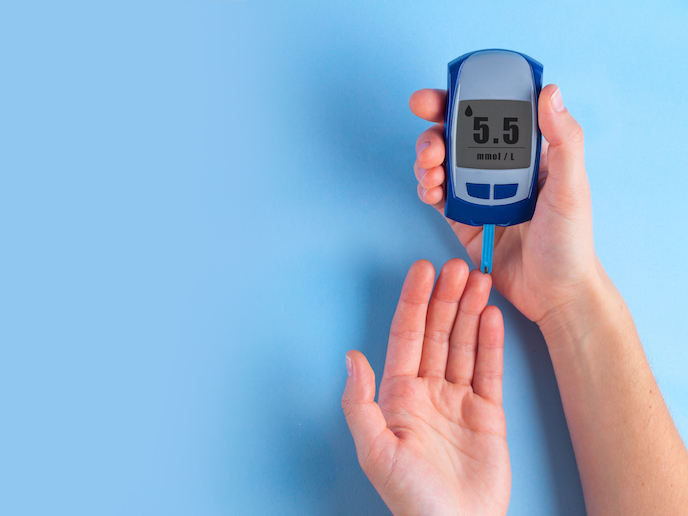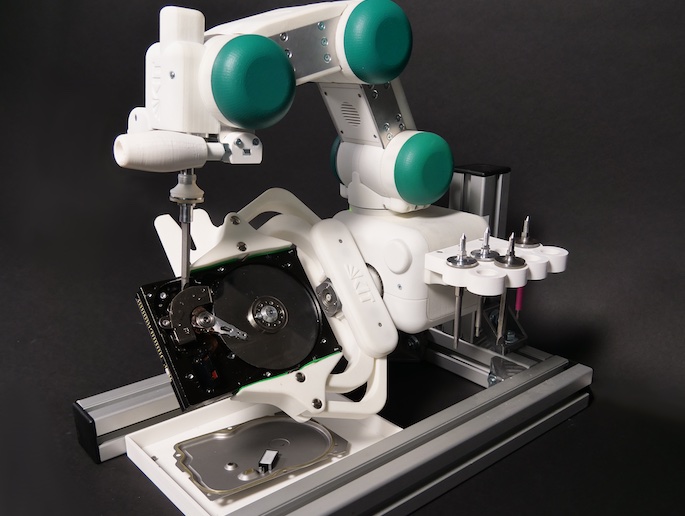Sensor tech develops whiskers
Within the world of robots there already exists a host of devices that amaze and inspire us as to their capabilities. From automatic vacuum cleaners to robotic toys, precise medical instrumentation to explorative devices, robotics has made great headway. Indeed, developments have come so far as to now be venturing into the realm of bio-robotics and neural research. The AMOUSE project headed by the Max-Planck-Institute for Psychological Research has developed a robot based on neural input that combines principles of synthetic biorobotics with neurophysiological behaviour. Having developed a model that is based on the whisker system of rodents such as mice or rats, the robot is unique in that it illustrates both the adaptive and the sensory behaviour of rodents. The whisker model is capable of measuring phasic responses along two orthogonal directions. This is due to its two-pair whisker construction, and therefore makes the device suitable for shape recognition tasks such as mapping the physical features of terrain. The developed product hosts other advantages in that it is a low-cost and robust technological solution, especially considering that its construction allows it to measure slanted surfaces. Aside from the technological achievements of the developed whisker sensor, the project also has an additional purpose behind the development. Since it is modelled on adaptations developed in animals, the development will contribute towards research where the artificial serves as a platform for real world neurobiological advancement.







